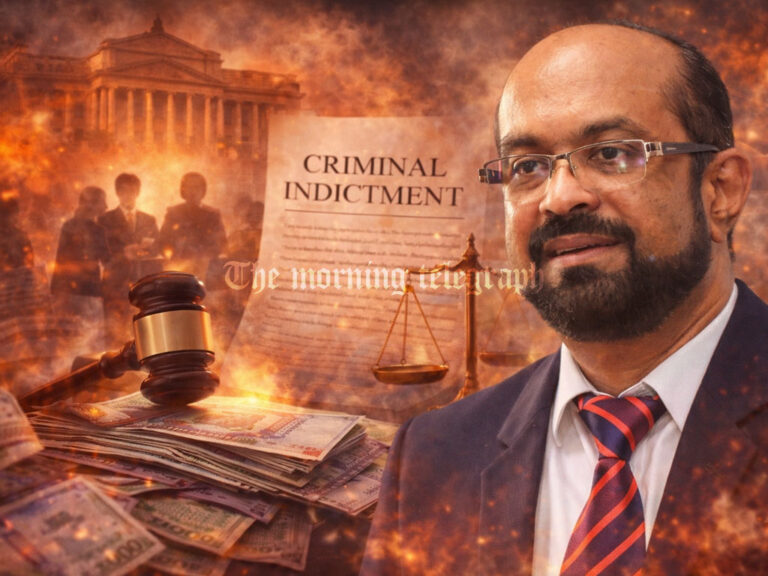
The Colombo High Court, presided over by Judge Mr. Aditya Patabandige, sentenced a lawyer to eight years of hard labor imprisonment today for fraudulently preparing land deeds. The conviction arose from multiple charges involving the creation of false documents, specifically using the notary license of a deceased lawyer while he was under a ten-year suspension from practicing law imposed by the Supreme Court.
The court handed down a four-year sentence for one charge and an eight-year mandatory term for two other charges, alongside a fine of Rs. 20,000. The case underscores serious implications for legal professionals engaged in fraudulent activities, emphasizing the judiciary’s commitment to upholding the integrity of legal processes.
The case against the lawyer dates back to October 11, 2013, when the Attorney General filed charges related to the fraudulent preparation of land deeds in the Rajagiriya Koswatta area. The prosecution revealed that the accused had been suspended from practicing law due to prior misconduct and had taken advantage of this time to engage in further deceitful practices.
Mr. Lishan Rathnayana, Senior Government Lawyer, represented the prosecution and argued that the accused had knowingly exploited the notary license of a deceased lawyer to prepare land deeds during his suspension. The evidence presented indicated that the accused prepared these deeds despite being fully aware of his inability to practice law.
During the trial, Mr. Rathnayana stressed the importance of holding legal professionals accountable for their actions, especially when their misconduct undermines public trust in the legal system. He stated, “The society is in great decline due to the crimes committed by people who know the law,” asserting that the actions of the accused not only harmed individual victims but also set a troubling precedent for the legal profession.
He requested the court impose the maximum sentence, arguing that it would serve as a deterrent against similar crimes and reaffirm society’s expectations of ethical conduct from legal practitioners. The prosecution’s case was bolstered by detailed testimonies and evidence showcasing the fraudulent activities carried out by the accused.
After thorough deliberation, Judge Patabandige ruled that the prosecution had proven its case beyond a reasonable doubt. The judge highlighted the need for stringent measures to combat corruption and fraud within the legal system. He stated, “Crimes committed by individuals in positions of trust erode the foundational principles of justice and require robust responses.”
The accused’s history of prior misconduct and the nature of the offenses were critical factors in determining the sentence. The judge emphasized that the judiciary must demonstrate zero tolerance for fraud, especially by those who are supposed to uphold the law.
The ruling serves as a stark reminder of the consequences of fraudulent behavior within the legal profession. Legal experts and observers of the case note that the decision reflects the judiciary’s commitment to restoring public confidence in legal institutions by holding offenders accountable and deterring future misconduct. The sentence will likely encourage further scrutiny of ethical practices among legal professionals in Sri Lanka.




